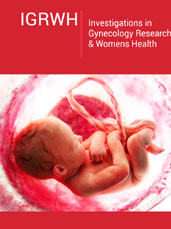- Submissions

Abstract
Investigations in Gynecology Research & Womens Health
Knowledge and Practice of Breast Self-Examination Among Female Health Workers in Northern Sudan
-
Open or CloseElsayed Basheer El-haj Elnour1, Hider Osman Jafar Mohammed1, Abdallah Omer1, Motwakil Imam AwadelkareimImam1, Tibyan Abdalmajed Altaher2, Rania Saad Abdulgader Suliman3, Ghanem Mohammed Mahjaf4 and Mosab Nouraldein Mohammed Hamad5*
1Department of Medicine and Surgery, Faculty of Medicine, Shendi University, Sudan
2Department of Clinical Chemistry, Faculty of Medical Laboratory Sciences, Shendi University, Sudan
3Department of Clinical Laboratory Sciences, Prince Sultan Military College for Health Sciences, Saudi Arabia
4Department of Medical Microbiology, Faculty of Medical Laboratory Sciences, Shendi University, Sudan
55Microbiology Department, Faculty of Medicine, Elsheikh Abdallah Elbadri University, Sudan
*Corresponding author:Mosab Nouraldein Mohammed Hamad, Assistant professor, Microbiology Department, Faculty of Medicine, Elsheikh Abdallah Elbadri University, Sudan
Submission:June 23, 2025;Published: September 09, 2025
Abstract
Background: Cancer is a lethal disease that claims millions of lives each year. Among all types of cancer, breast cancer is the most prevalent and the leading cause of mortality among women in developing countries. In Sudan, its incidence rate is 25.1 per 100,000 population, making it the most commonly diagnosed primary malignancy among women. Breast Self-Examination (BSE) is considered a key method for identifying early breast cancer.
Objectives: To assess the awareness of breast cancer and the practice of self-breast examination among female health workers in Shendi and Al-Matammah towns from November 2023 to January 2024.
Methods: This is a descriptive, cross-sectional, hospital-based study examining awareness of breast cancer signs, risk factors, and the practice of Self-Breast Examination (SBE) among female health workers across all health institutions in Shendi and Al-Matammah localities, involving 335 female health workers to evaluate their knowledge of breast cancer signs, risk factors, and examination practices.
Results: The study was conducted among medical staff in the Shendi locality and involved 335 participants. Thirty-one participants (9.3%) reported not knowing the importance of early detection of breast cancer, while 113 participants (33.7%) stated they have average knowledge, and 191 participants (57.0%) indicated they possess good knowledge.
Conclusion: The prevalence of breast self-examination among healthcare professionals is notably low. This emphasizes the need for ongoing medical education on breast cancer and breast self-examination to enhance the knowledge and skills of female healthcare providers. Continuous medical education programs are urgently needed.
Keywords:Breast self-examination; SBE; Breast cancer; Female healthcare
 a Creative Commons Attribution 4.0 International License. Based on a work at www.crimsonpublishers.com.
Best viewed in
a Creative Commons Attribution 4.0 International License. Based on a work at www.crimsonpublishers.com.
Best viewed in 








.jpg)






























 Editorial Board Registrations
Editorial Board Registrations Submit your Article
Submit your Article Refer a Friend
Refer a Friend Advertise With Us
Advertise With Us
.jpg)






.jpg)














.bmp)
.jpg)
.png)
.jpg)










.jpg)






.png)

.png)



.png)






